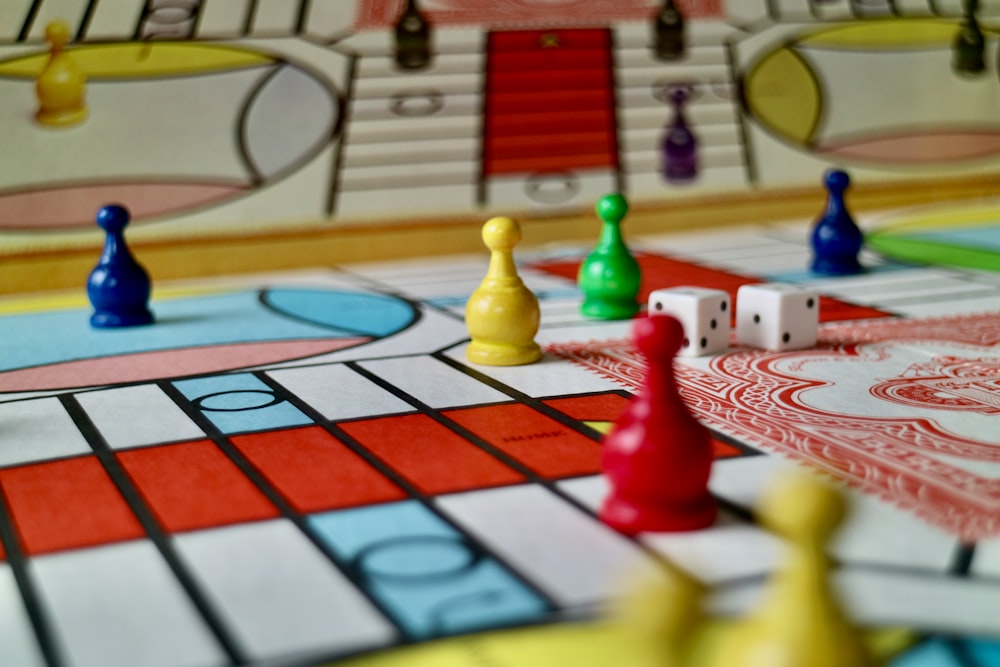Introduction
As parents, we are constantly looking for ways to support our children's development and help them acquire essential skills.
One crucial skill that children need to develop is spatial perception. Spatial perception refers to the ability to understand and interpret the spatial relationships between objects and oneself.
It plays a vital role in various aspects of life, from problem-solving to motor skills development. One effective way to enhance learning and development in children is through board games. In this blog post, we will explore the importance of spatial perception and how board games, such as the ones offered by Picked By Papa, can assist in its development.
Benefits of Board Games for Learning and Development Skills

Manipulating Objects
Board Games require children to physically manipulate objects, such as puzzle pieces, cards, or game figures. This hands-on interaction helps children develop fine motor skills and coordination while understanding how objects can be moved and repositioned in space.
Analyzing Spatial Relationships
Board Games often involve arranging pieces or elements in specific ways. Children must analyze the spatial relationships between different components and determine how they fit together. This process strengthens their ability to recognize shapes, sizes, and orientations.
Critical Thinking
Solving Board Games puzzles involves critical thinking skills, as children must strategize and plan their approach.
Visualizing
Board Games require children to visualize the end goal or the completed puzzle. They must mentally imagine how the pieces fit together or how the game board should look. This skill of mental visualization enhances spatial awareness and the ability to mentally manipulate objects.
Reasoning Spatially
Board Games encourage children to reason spatially by understanding the relationships between objects and their positions. They learn concepts like above, below, beside, inside, and outside. These spatial relationships are vital for tasks like reading maps, following directions, and understanding geometric concepts.
Understanding Wholes and Parts
Board games and card games help children understand how different parts come together to form a whole. They learn to recognize how individual pieces contribute to the overall picture or structure. This Board Games skill is transferable to real-life situations, where children must understand how smaller components fit into a larger context.
Developing Patience and Persistence
Board Games often require patience and perseverance to solve. Children learn to stay focused, keep trying, and overcome challenges. These qualities are crucial for developing a growth mindset and resilience in the face of difficulties.
Enhancing Spatial Memory
Many Board Games involve remembering the spatial positions of objects or the sequence of steps taken. Children develop their spatial memory skills, which are useful in tasks like remembering directions, locations, or spatial patterns.
Promoting Creativity and Imagination
Board Games can inspire creativity and imagination. Children may invent their ways of solving puzzles or create unique arrangements using the pieces provided. This freedom allows them to explore spatial possibilities and think outside the box.
Fun and Engaging Learning
Board Games make learning spatial perception enjoyable and engaging. Children are naturally drawn to the challenge and satisfaction of completing a puzzle. This intrinsic motivation enhances their learning experience and encourages them to persist in developing their spatial perception skills.
The Role of Board Games and card games:

Board games and card games are excellent tools for fostering spatial perception skills in children. They present challenges that require children to manipulate objects, analyze spatial relationships, and think critically. By engaging with board games and card games, children can develop their ability to visualize, reason spatially, and understand how different parts fit together to form a whole.
Picked By Papa Board Games
Picked By Papa offers a range of best wooden puzzle toys specifically designed to promote spatial perception in children.
Let's take a closer look at some of their products and how they can benefit your child's development:
Toddler Card Game: Animal Families
This card game introduces young children to the concept of matching and recognizing animal families. By observing and identifying similarities and differences between animal figures, children enhance their ability to identify patterns and make connections based on spatial relationships.
Children's Card Game: Pop!
The Pop! card game challenges children to strategically place and connect colored dots. By arranging the cards to create a continuous line of dots, children strengthen their visual-spatial skills and learn about spatial relationships in a fun and engaging way.
Christmas Tale
The Christmas Tale board game requires children to navigate a game board using dice and character figures. By moving the figures across the board, children develop their understanding of spatial relationships and enhance their spatial awareness.
Bugs
In the Bugs board game, children are tasked with guiding cute bug monsters through a maze-like environment. By manipulating game pieces and planning their moves, children improve their spatial reasoning skills, such as mental rotation and spatial visualization.
Dogs & Homes
Dogs & Homes is a board game where children match dogs with their respective homes. By identifying and connecting the correct combinations, children strengthen their spatial perception and learn about spatial organization.
Conclusion:
Learning and Development is a fundamental aspect that children need to develop for various aspects of their lives. Board games and card games, such as the ones offered by Picked By Papa, can be powerful tools for enhancing spatial perception skills. So, why not consider incorporating board games into your child's playtime and witness the positive impact on their spatial perception abilities? Remember to check out Picked By Papa's range of board games and card games and provide your child with the opportunity to enhance their learning and development skills while having a blast!
Also read - STEM Toys for Kids: Inspiring a Love for Science and Technology

